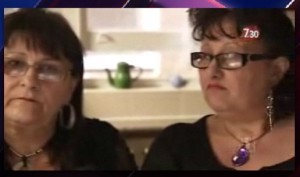A recent 7.30 report about the insufficiency of the Newstart Allowance was a major national media hit, adding further momentum to the push to significantly increase the benefit.
Find the story here; scroll down the selection on the right and look for Unemployment Benefits.
This story didn’t happen by accident – a nonprofit pushed it to reporter Stephen Long.
7.30 is always a great hit to get and like so many stories, it revolves around a case study bolstered by various experts. Experts are easy to find – what gets you more success more often is a compelling, case study. They are vital. Supply good case studies and you can befriend many a journo.
A good case study truly personifies a circumstance. It wraps up a complex problem and represents it to the public in a simpler, sympathetic light.
Maria is not such a case study. Maria is simply not a sympathetic, nor particularly representative case study. She is a poor selection.
Let us be clear – this is not a comment on Maria or her circumstances or the issue. This is a comment from a campaigner’s perspective on how smart a choice she was by the publicist behind the pitch. This is a judgement on how she serves the campaign as a whole.
Maria is being forced to move from the Carers Payment which she has been on for over a decade and on to Newstart at a loss to her of $200 per fortnight. She will be expected to actively look for work like any other jobseeker.
Naturally Maria is unhappy but many viewers will not be particularly moved by Maria’s claim that she cannot work due because of her age (62) or her poor English skills (she migrated here in 1976). Her knee injury is not demonstrated.
Moreover Maria doesn’t want to work and as such is A) more difficult to like B) fails to represent a sizeable percentage of those on Newstart who do want to work C) reinforces every stereotype about CALD and unemployed people on benefits.
Imagine being on miserly Newstart and genuinely not being able to find work despite your best efforts – would you have been happy with this representation?
That said; the story is remarkably sympathetic. In fact the reporter was entirely derelict in his efforts counterbalance the debate. (It’s also poorly edited as we get a line repeated but we digress.)
We hear little about solutions to help these people find work from experts. It’s just a case of raising the Newstart benefit which opponents will hear as: “More money, more taxes, more money, more taxes!” It comes across as very welfare, very 70s, very charity, very whingy.
A much more constructive case study would have been an individual who actually WANTS to work but cannot due to a lack of training options, disability employment services, a sympathetic employer, age or gender discrimination. Anyone who actually genuinely wants to work but genuinely can’t would have been better. A sense of entitlement rarely wins over swinging voters on any issue.
Good case studies:
- Must be slam dunks; giving no fuel to your opponents.
- Personify a situation.
- Don’t need to be experts in the issue.
- Can fully articulate their own particular experience.
- Want the same outcome that you do.
- Are vital to getting story ideas over the line.
- Are happy to be restricted to offering a personal perspective.
- Will appeal to the ‘swinging voter’ not just those who are sympathetic.
- Meets a negative perception of your audience head on.
- Are sympathetic people – not just nice people. There’s a difference.

